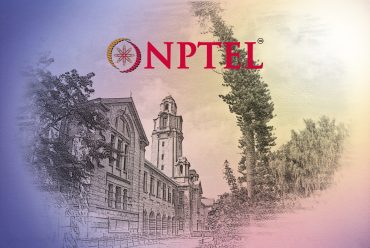Cell Biology: Cellular organization division and processes
INTENDED AUDIENCE : Biology, Chemistry.
PREREQUISITES : Basic Molecular Biology, Genetics and Biochemistry. Especially basic structure and function of biomolecules including enzymes.
INDUSTRIES SUPPORT : None
ABOUT THE COURSE : This course focuses on cell organization, and the molecules and intracellular processes crucial for life and inheritance. A particular emphasis is on DNA transactions such as chromosome organization, replication, chromosome segregation, etc. Some examples of key discoveries in the field of cell cycle regulation, chromatin organization, and the dynamic processes and molecular machines involved in cell division will be discussed in detail. Other topics include Nuclear organization, Mitosis and Meiosis and cell death. In addition, cellular diversity will be discussed including selected specialized eukaryotic cells and their functions, cancer cells-how controls go wrong, and stem cells.
This course includes 2 modules of 10 lectures each. It is intended for graduate students mainly M.Sc. students (or 1st year Ph.D. students). Final year B.Sc. students may also find it useful.

Prof. Shikha Laloraya
IISc Bangalore
Work experience: I am a Professor of Biochemistry, I.I.Sc. I also was Associate Professor and Assistant Professor of Biochemistry, and a Wellcome Trust International Senior Research Fellow in Biomedical Science in India, at I.I.Sc. Academic background:I did my Ph.D. in Oncology, from the University of Wisconsin-Madison, U.S.A. and post-doctoral research at the Carnegie Institution of Washington, Dept. of Embryology, and the Howard Hughes Medical Institutes, in Baltimore, U.S.A. I obtained an M.Sc. degree from the Centre for Biotechnology, Jawaharlal Nehru University, and also studied Life Sciences at the School of Life Sciences, Devi Ahilya Vishwavidyalaya. I did my B.Sc. from Devi Ahilya Vishwavidyalaya, Indore. Selected Awards: -The Wellcome Trust International Senior Research Fellowship in Biomedical Science in India, The Wellcome Trust, UK. 2001-2006 -Howard Hughes Medical Institute Research Associate at the Carnegie Institution, Baltimore, MD, USA. 1997-1999 -The Wisconsin Power and Light Foundation Fellowship in Cancer Research, Mc Ardle Laboratory for Cancer Research, UW-Madison, USA. -The Ravindra Nath Tagore Janm Shatabdi Gold Medal for First Rank among Bachelors degree candidates in all disciplines in the university, Devi Ahilya University, Indore, India -The Prerna Club Gold Medal for First Rank among women in B.Sc., Devi Ahilya University, Indore, India -Chintamani award for First Rank in the University for B.Sc., Devi Ahilya University, Indore, India. My general expertise is Molecular Genetics, Cell Biology and Biochemistry and my current research interests are Chromosome organization, Gene expression, post-translational modfications of proteins, Mitosis, and Cell Cycle. More information at: https://www.researchgate.net/profile/Shikha_Laloraya https://biochem.iisc.ac.in/shikha-laloraya.php
Course layout
Week 1:
Lecture 1- Cell components and organization; macromolecules, membranes, organelles, and processes.
Lecture 2- DNA: The genetic material; Cell Cycle.
Lecture 3- Regulation of the Cell Cycle.
Week 2:
Lecture 4- S-phase: DNA Replication and its regulation. Repair and recombination.
Lecture 5- Checkpoints: DNA Damage and DNA Replication checkpoints.
Week 3:
Lecture 6- Chromosome reorganization during mitosis; The centrosome duplication cycle.
Lecture 7- The microtubule cytoskeleton; Spindle organization, assembly and dynamics.
Lecture 8- Molecular motors; Role of motor proteins in mitosis.
Week 4:
Lecture 9- Mitotic checkpoints; Chromosome segregation and cell division.
Lecture 10- Meiosis
Week 5:
Lecture 11- Cell death, aging and senescence.
Lecture 12- Chromatin organization
Lecture 13- SMC proteins and chromosome organization
Week 6:
Lecture 14- The cohesin complex and its functions.
Lecture 15- Nuclear organization
Week 7:
Lecture 16- Cell diversity and properties of specialized cells.
Lecture 17- The Cancer Cell
Lecture 18- Stem cells
Week 8:
Lecture 19- Nerve cells
Lecture 20- The Plant Cell
Books and references
Alberts, et al. Molecular Biology of the Cell.
Lodish, et al. Molecular Cell Biology.



